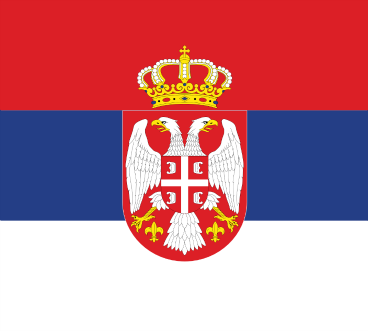Mr. Speaker, a few weeks ago I had the opportunity to meet five representatives from the independent, non-governmental organization Otpor. “Otpor,” in Serbian, means “resistance,” and the organization was founded in the mid-1990s by students from Belgrade University and elsewhere in Serbia, who had enough of Slobodan Milosevic’s choke-hold on the neck of Serbian society. Their efforts have forged a strong bond between idealism and realism. Otpor members engaged in passive resistance, never advocating violence nor returning the blows they received from the police and other thugs under Milosevic’s control. Instead, they had a stronger determination and persistence. Fear would not keep them from putting up their posters, from wearing their black-and-white emblem of a clenched fist. Moreover, they kept their eye on the goal of a democratic and tolerant Serbia at peace with its neighbors and with itself. The organization appointed no specific leader, in a strategy to thwart any attempt to compromise the individual–they had learned the lesson from observing the many opposition politicians in Serbia who had been compromised. During the past two years, more than 1,500 Otpor activists, of about 50,000 based in over 10 Serbian cities, were arrested and interrogated by security forces under Milosevic’s control. One of the five who visited my office had himself been arrested on 17 occasions.
Prior to the September 2000 elections, Otpor worked closely with the democratic political opposition, independent trade unions, NGOs and other youth groups to mobilize voters. Otpor’s activists played a crucial role in the street demonstrations that began immediately following the elections and led to Milosevic’s downfall. The impressive delegation of five Otpor activists visiting Washington included Slobodan Homen, Nenad Konstantinovic, Jovan Ratkovic, Jelena Urosevic and Robertino Knjur, all in their mid- to late-20s and very good English speakers. It is amazing to realize that they all grew up in the cruel, hateful and impoverished world Slobodan Milosevic had created for them in the 1990s. In the meeting, they provided one piece of very good news. One Otpor activist, Boris Karajcic, had testified in 1998 before the Helsinki Commission which I co-chair and was beaten up on the streets of Belgrade a few weeks later. Today, Boris is a member of the Serbian parliament. He is an active part of Serbia’s future. Otpor itself will also be part of Serbia’s future. While Milosevic is out of power, there is much to be done to recover from the nightmare he created.
First, they are investigating and compiling complaints about the police officers who brutalized them and other citizens of Serbia who opposed the regime, and they will seek to ensure that officers who seemed to take a particular delight in beating people for exercising their rights are held accountable. They want to see Milosevic himself arrested, both for his crimes in Serbia and the war crimes for which he faces an international indictment. The Otpor group also advocates the founding of a school of public administration, which does not exist in Serbia and is desperately needed as the government bureaucracies are swollen with Milosevic cronies who have no idea how to implement public policy. Along similar lines, they hope to begin an anti-corruption campaign. Finally, they pointed out that, with the fall of Milosevic, the united opposition now in power has no credible, democratic political opposition to it. Until Serbian politics develop further, they intend to serve some of that role, being a watchdog of the new leaders.
In conclusion, Mr. Speaker, the Otpor group with which I met has a track record of accomplishment, ideas for the future, and a good sense of how to bring those ideas into reality. While they have had the heart and the courage, they also have had the assistance of the United States through the National Endowment of Democracy and other organizations which promote democratic development abroad. I hope my colleagues will continue to support this kind of assistance, for Serbia and other countries where it is needed, which serves not only the interests of the United States but the cause of humanity.








